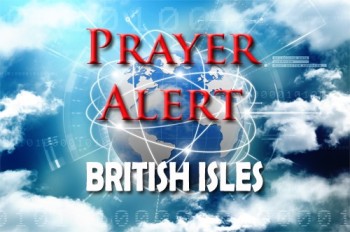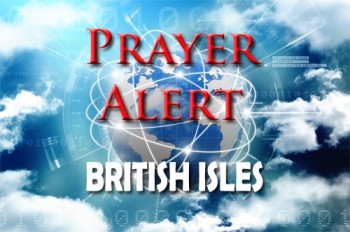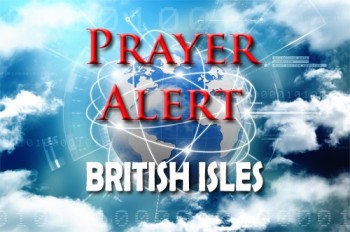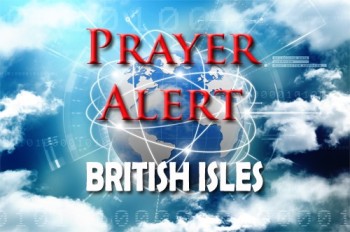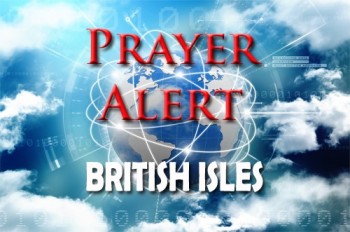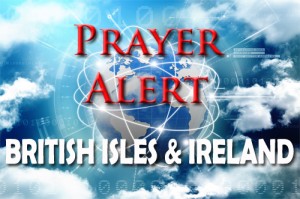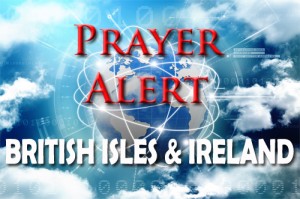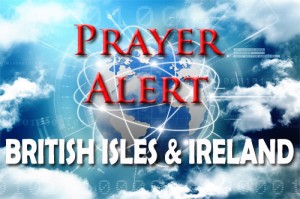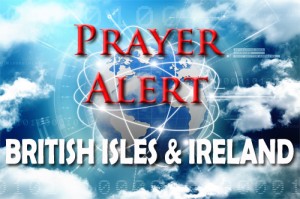Displaying items by tag: fracking
Ed Miliband pledges to ban fracking
Energy secretary Ed Miliband has pledged to permanently ban fracking, calling it dangerous and deeply harmful, as he urged Labour activists in Liverpool to embrace clean energy as the future. He argued that fracking does nothing to lower bills, create sustainable jobs, or meet climate commitments, but damages the environment. Miliband contrasted Labour’s stance with Reform UK, who advocate expanded fossil fuel extraction, accusing them of betraying future generations. He described Reform as 'science-denying, poverty-driving extremists' and urged voters to reject their policies. Fracking, briefly permitted under Liz Truss before being banned again by Rishi Sunak, involves injecting fluid underground to release gas, a method widely criticised by environmental groups. Miliband tied Labour’s green vision to economic renewal, insisting clean energy is Britain’s best opportunity for job creation in decades, as well as the only sustainable solution to high energy bills.
Energy: fracking challenges
When asked if he would allow fracking in the back garden of his home in Somerset, business secretary Jacob Rees-Mogg said, ‘Yes, of course I would, particularly if I get royalties’. Fracking has been a controversial subject within local communities and amongst MPs due to its association with minor earthquakes. In 2019, at oil and gas exploration company Cuadrilla's Lancashire fracking site, over 120 tremors were recorded. Most were too small to be felt. The government recently published a new review from the British Geological Survey, considering any changes to the science around the practice. The report concluded, ‘Forecasting the occurrence of large earthquakes remains a scientific challenge for the geoscience community.’ Mr Rees-Mogg also said that the UK would build a prototype nuclear fusion power plant - ‘the first of its kind’ - in Nottinghamshire by 2040.
Kickstart fracking revolution?
Liz Truss is being urged to relax the limits on earthquakes caused by fracking to kickstart an energy revolution. She is poised to end the fracking freeze, to make Britain energy independent by 2040. Fracking businesses are lobbying for limits on seismic activity to be substantially increased to kickstart the industry. Currently drilling must stop if tremors of 0.5 occur. Experts say those occur naturally and are often imperceptible above ground. Cuadrilla want equality with other industries. Geothermal energy can create earthquakes of higher magnitudes than 0.5. The USA allows magnitude 4 tremors. A 2012 report said magnitude 3 tremors were ‘felt by few people’. But when Cuadrilla’s Lancashire test caused a 2.9 tremor, homes shook and objects fell off of shelves. A petroleum geologist at Newcastle University said fracking had thus far not been a major source of earthquakes; coal mining had caused many times more.
MPs ask PM to reverse fracking ban
A letter to the PM, signed by 34 MPs and five peers, claims that pressing ahead with the fracking ban would play into the hands of the Kremlin, which they say wants to ‘stop us following this path to energy independence’. Energy company Cuadrilla is due to concrete over its two wells in Lancashire on 15 March, as ordered by the Oil and Gas Authority (OGA). The MPs’ letter to Mr Johnson stated, ‘We urge you to pause and review this decision. At a time of such geopolitical strife, we cannot refrain from actions that would improve the position of the UK and its allies. We have seen how a reliance on imported gas affects the responses of other countries during the initial stages of Russian aggression.’ OGA replied, ‘Fracking causes earthquakes, is hated by neighbourhoods, would take a decade to kick-start, and won’t lower the price’.
China: earthquakes and fracking
On 17 June buildings collapsed, trapping people underneath in a 6.0 magnitude earthquake in the south-west Chinese province of Sichuan. Thirteen people have died so far, and 4,000+ people have been relocated from damaged and destroyed homes. Landslides damaged major roads. Over 500 firefighters were deployed to the area, and rescue teams are bringing in 5,000 tents, 10,000 folding cots, and other supplies. See Earlier this year a thousand residents gathered outside government buildings in Sichuan province, blaming recent earthquakes on shale gas exploration in the area. The county subsequently suspended fracking operations. The Seismological Society of America attributed a 5.7 quake in December 2018 and a 5.3 quake in January 2019 to fracking activities in the region. Quake-prone Sichuan has extensive fracking operations, accounting for about a third of China's total shale gas production. Chinese geologists said that over-development of hydropower resources has undermined the seismic stability of Sichuan. Some blame the 2008 catastrophic earthquake on large-scale damming.
Fracking: larger earthquakes?
Fracking company Cuadrilla has requested an urgent review of existing earthquake safety levels, hoping that the permission to generate larger tremors will allow them to extract greater quantities of shale gas from Lancashire. Currently they must suspend drilling when quakes measuring over 0.5 magnitude are detected. Although numerous legal challenges and protests were not enough to prevent the company from beginning exploratory drilling at Preston last year, it is now the government’s ‘traffic light system’ for seismic activity which the industry appears to consider the greatest threat to its survival. There is a ‘rich reservoir of recoverable high quality natural gas present’, but the seismic operating limit remains a barrier to developing its potential. David Attenborough and others believe that the Government should stop wasting time on this polluting industry and back the clean energy infrastructure needed to tackle climate change.
Fracking restarts in Lancashire
Fracking for shale gas has begun for the first time in the UK since it was linked with earthquakes in 2011. Energy firm Cuadrilla confirmed that the controversial process had started at its site in Lancashire after a legal challenge failed. Cuadrilla insisted the process was safe and would be of ‘enormous’ benefit, leading to tens of thousands of jobs if successful. After at least three months fracking two horizontal wells, they will then test to see if the gas flow is commercially viable. If it is, up to 20 wells could be built. Protesters call it a toxic industry and an environmental disaster. Cat Smith, Labour MP for Lancaster and Fleetwood, tweeted, ‘Future generations will look back at this and wonder why we didn't heed climate change warnings’. Many believe the process of hydraulic fracturing of the earth’s crust in the UK is taking an enormous risk of triggering earthquakes.
Scotland: battle over fracking
Petrochemicals giant Ineos is taking SNP ministers to court, to overturn their ‘unlawful’ fracking ban. The SNP faces a protracted legal fight, potentially spending millions of pounds of taxpayers’ money, to keep Scotland free of fracking. In England, there are currently ten more fracking applications. Global fracking is driven by the depletion of fossil fuels, leading to the exploitation of increasingly harder-to-extract resources that can have a damaging effect on communities. Evidence (increasingly hard to ignore) from the USA, Canada, and Australia, where tens of thousands of wells have already been drilled, is that fracking destroys water supplies, air quality, and people’s health. Beyond these issues lurk local and regional impacts like ‘orphaned wells’ (abandoned wells sending toxic pollutants into the environment). It is believed that financially successful UK fracking would require tens of thousands of wells to be drilled. See also the previous article, on Cleaner greener Britain, and
Scotland bans fracking
A decision by the Scottish government to ban fracking has been welcomed by the Church of Scotland. Church leaders said the vast majority of congregations oppose this controversial practice. They have now called for more opportunities to exploit greener energy sources, like wind. Adrian Shaw, the Church of Scotland's climate change officer said the Church is against fracking ‘primarily because of a need to build a low carbon economy’, adding, ‘Continuing dependence on fossil fuels, coal, and gas delays a low-carbon economy.’ He also said that the Church believes in the potential for Scotland to be fully green. ‘Our resources for wind power, hydropower, and tidal power are enormous here.’
Fracking in the UK
Anti-fracking activists placed adverts in Leeds bus-stops stating that thousands of gallons of fracking fluid could be headed for the city. This overnight action was part of a national ‘Break the Chain’ fortnight, which also saw protesters suspended by swings above a quarry in Carnforth for eleven hours and residents walking 120 miles in an area where a fracking licence was granted. Lancashire and Yorkshire are concerned that wastewater from potential fracking sites could enter local treatment works. This week 250 people attended a protest rally near the UK's first horizontal fracking site, and earlier this month the Government was taken to court about its permitting Cuadrilla to test fracking sites in the UK. On Monday Nottinghamshire planning officers will publish recommendations for another shale gas well.
